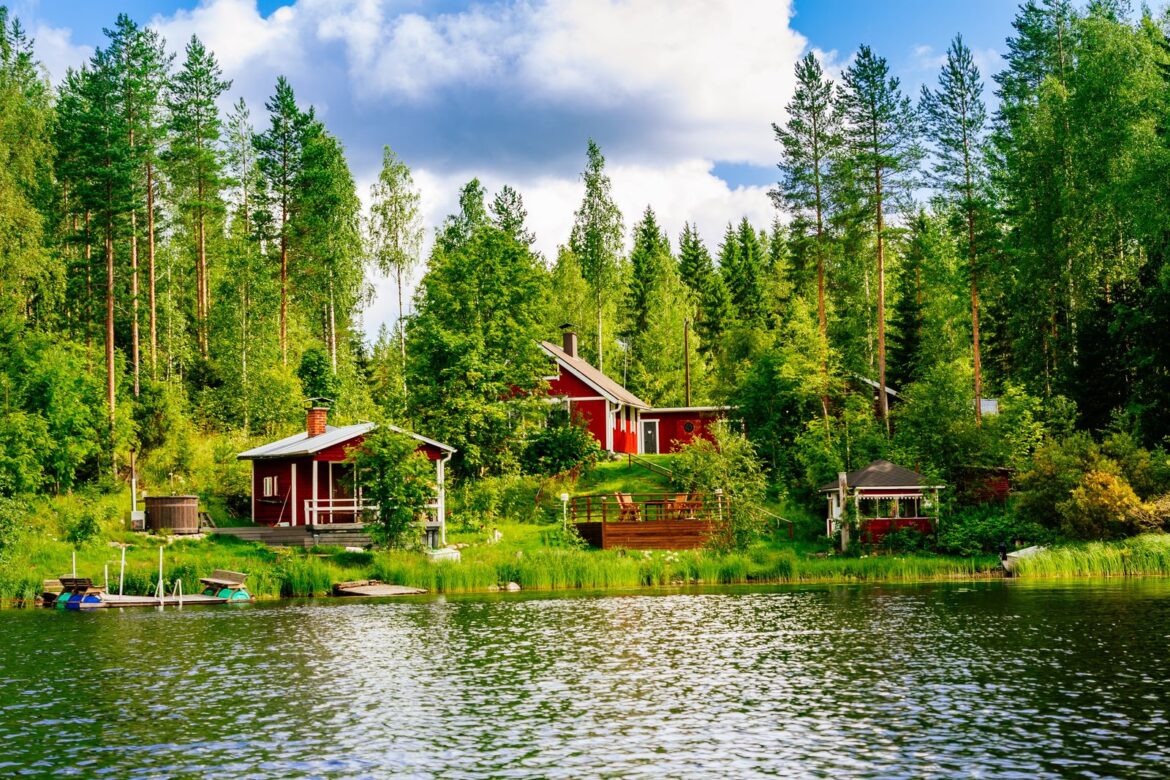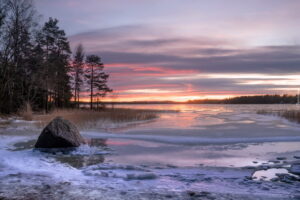Finland, repeatedly named the happiest country in the world, has held the top spot in the World Happiness Report rankings for several years. This title is not just a result of statistics, but also a reflection of deep cultural values that shape the daily lives of its inhabitants.
Nature as the basis of happiness
One of the key factors contributing to the happiness of Finns is their inseparable relationship with nature. The concept of "kaikkien oikeus" or "everyone's right" allows residents access to forests, lakes and coastal areas regardless of ownership. This approach encourages activities such as camping, mushroom picking, swimming, hiking, horseback riding, and skiing in these public spaces. The presence of nature in the daily lives of Finns, whether in cities or small villages, contributes to reducing stress and promoting happiness.
Equality and social support
Finnish society is built on the principles of equality and strong social support. High taxes finance quality public services, such as healthcare and education, that are available to all residents. This system ensures that everyone has equal opportunities to succeed and access necessary services, which contributes to an overall sense of well-being and happiness.
Cultural values and lifestyle
Finnish culture emphasizes values such as trust, transparency, and responsibility. These values are reflected in everyday life, from the functioning of public institutions to personal relationships. Finns value a peaceful and balanced lifestyle that includes time spent with family, friends, and in nature. This approach to life contributes to their overall sense of happiness and satisfaction.
Finland: How nature shapes Finns' happiness
Finland is a country that regularly ranks at the top of happiness rankings, and many wonder what’s behind this success. While some Finns remain skeptical of the label “the happiest country in the world,” others humbly focus on what they have. One of the main reasons for this sense of well-being is a deep connection to nature and a culture that values it as a key factor in happiness.

Nature as a pillar of Finnish values
Known for its thousands of lakes, forests and diverse fauna, Finland offers its inhabitants a unique opportunity to live in direct contact with nature. This connection with nature is not only an aesthetic experience, but also a fundamental pillar of happiness. For many Finns, nature is a place where they find peace, refuge and balance in their daily lives. From spring walks in the woods to winter saunas by the lake – all these activities contribute to the feeling of happiness that is so natural to Finns.
Sisu: Perseverance and strength in difficult times
Finnish culture is rich in the concept of “sisu”, which is a term for resilience and perseverance. This phenomenon is an integral part of Finnish identity and is often associated with living in nature. Finns see living in extreme conditions, such as long and dark winters, as a challenge that shapes their character. Although living in such conditions can be demanding, many Finns see it as a natural part of their culture and life, helping them find strength and well-being even in difficult times.
Equality and access to nature for all
Finnish culture is not only about resilience, but also about equality. The country is characterized by a fundamental principle of access to nature, which allows everyone, regardless of social status, to enjoy natural resources. This approach is enshrined in legislation and referred to as the “right of free movement” (allemannsretten), which gives both residents and visitors the right to move freely in public natural areas. This approach not only promotes equality, but also strengthens the connection between Finns and their natural environment.
The many faces of happiness
Happiness in Finland is not just about material success or comfort. Rather, it is a comprehensive view of life that includes a balance between personal life, nature, and community. While not every Finn considers their country to be the happiest, many recognize the value of what they have. For them, happiness is not just about wealth, but also about the ability to find satisfaction in the simple, everyday joys that their natural environment offers them.





